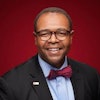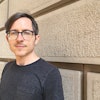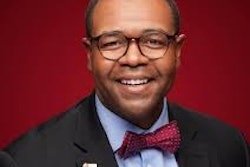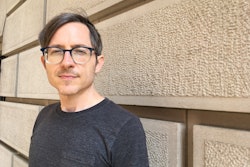I  Dr. Alice Ragland
Dr. Alice Ragland
We seem to have a cultural obsession with neutrality in this country. We are constantly told that we must “see both sides,” even when one side is clearly rooted in misinformation or even hate. But as Robin Diangelo and Özlem Sensoy remind us in their book Is Everyone Really Equal? not all perspectives are equally valid. Not all ideas deserve equal time. Some don’t deserve time or attention at all. Some are simply wrong, and the classroom should not be a place to entertain false information for the sake of balance.
There is no credible debate about whether humans are contributing to climate change, nor is there a credible debate about the existence of racism. There is plenty of dialogue and disagreement about what we should do about these problems, but that’s a different conversation entirely. The idea that presenting all views is “fair” relies on a false idea that education should be apolitical or neutral. But there is no such thing as an objective classroom. Every choice we make is shaped by values, from the texts we assign to the voices we center. The pretense of neutrality is often just a cover up for upholding dominant narratives and silencing marginalized ones.
I believe deeply in education as a liberatory practice. It’s why I decided to get a PhD in education, why I was interested in researching the ways that schooling has historically been one of the most important tools for upholding systemic oppression, and why I wanted to contribute to the conversation about the potential for education to either reinforce the status quo or to open people’s eyes to the truth about systemic injustice. In my classroom, we engage with complexity. We analyze causes, structures, power dynamics, patterns, and solutions. Helping students develop critical thinking skills, media literacy, and historical context are central to my practice. But we do not waste time debating whether oppression is real. Doing so would be a disservice to me, to the students, and to the integrity of education itself. I make it crystal clear that education does not mean pretending that every opinion is equally defensible or that every idea deserves space in the classroom.
We should be teaching students how to evaluate evidence, not how to politely entertain lies. And let me be clear: I’m not afraid of disagreement. I welcome real dialogue. I encourage my students to ask hard questions and to wrestle with different perspectives. But that requires a foundation of truth. We can’t have meaningful discussion if we can’t agree on basic facts. When false equivalence abounds and taking “all sides” seriously is treated like a virtue, students walk away confused, unsure if decades of peer-reviewed research hold the same weight as a random person’s opinion they heard on a podcast or saw on social media. They are left floating in a sea of noise, without the tools to distinguish knowledge from nonsense.
And for students of color, queer and trans students, immigrant students, and others whose lives are directly impacted by systems of oppression, being told that their lived experience is up for debate in the name of “intellectual diversity” is not just disorienting, it’s traumatizing. It’s a form of gaslighting. It sends the message that their realities are just one side of a conversation, and that the people who deny their realities or even their humanity deserve equal time and space. That’s not education, that’s abuse.
What’s especially ironic is that the same political figures shouting about “free speech” are the ones trying to censor discussions of race, gender, and systemic injustice. They want the freedom to spread harmful ideologies without consequence, but they don’t want students to hear the truth from experts, scholars, or people with lived experience. They’re not interested in dialogue; they’re interested in power and control.
Despite the “all sides” political rhetoric and attempts to prohibit “divisive concepts” in the classroom, education is not about appeasing everyone. It’s about equipping students to understand the world as it is and imagine what it could be. That starts with a commitment to the truth, and the courage to say that some opinions are simply not worth our time.
Dr. Alice Ragland is an Assistant Professor of Liberal Arts at the Columbus College of Art & Design.



















